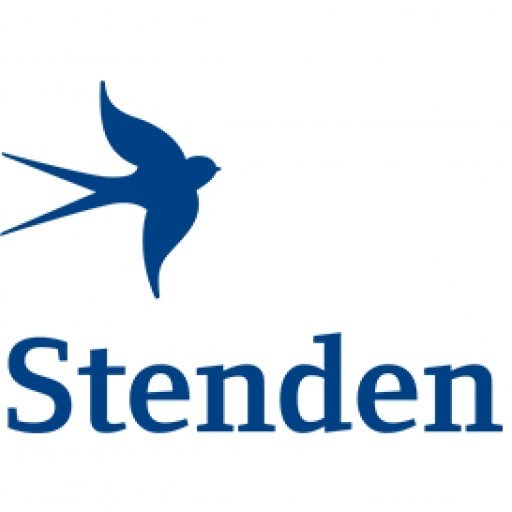Photos of university / #tallinnatehnikakorgkool
Tourism Destination Management is a comprehensive program designed to prepare students for strategic and operational roles within the dynamic tourism industry. This curriculum combines theoretical foundations with practical skills, equipping students with the knowledge necessary to develop, promote, and sustain attractive and competitive tourism destinations worldwide. Throughout the program, students explore various aspects of tourism, including sustainable development, marketing strategies, hospitality management, cultural heritage preservation, and the economic impact of tourism. The curriculum emphasizes understanding customer behavior, managing stakeholder relationships, and implementing innovative solutions to meet the evolving demands of travelers. Students are also introduced to data analysis, digital marketing tools, and event management techniques essential for modern destination management. The program encourages hands-on learning through internships, project work, and case studies, enabling students to apply their knowledge in real-world scenarios. Graduates of the Tourism Destination Management program will be well-equipped to pursue careers in destination marketing organizations, tourism boards, hotel and resort management, event planning, and consultancy services in the tourism sector. They will possess the analytical skills, cultural awareness, and strategic thinking required to enhance the appeal of various destinations, ensuring sustainable growth and visitor satisfaction. The program fosters an international outlook, preparing students to operate effectively in a globalized tourism environment. Ultimately, this degree aims to cultivate visionary professionals capable of shaping the future of tourism destinations and contributing to the prosperity of local communities and economies.
The Tourism Destination Management program at the University of Applied Sciences offers a comprehensive and practical curriculum designed to equip students with the necessary skills and knowledge to succeed in the dynamic field of tourism planning and management. Throughout the program, students will explore the fundamental principles of tourism development, focusing on sustainable and responsible tourism practices that ensure the long-term viability of destinations. The curriculum combines theoretical foundations with real-world applications, including case studies, internships, and project work, enabling students to develop a deep understanding of destination marketing, visitor management, and local community engagement.
Students will learn about the strategic planning processes involved in developing attractive, accessible, and sustainable tourist destinations. The program covers various aspects of destination management such as tourism product development, digital marketing strategies, customer experience enhancement, and crisis management in tourism. Emphasis is placed on the importance of collaborating with local stakeholders, including government agencies, businesses, and residents, to create vibrant and resilient tourism destinations that benefit all parties involved.
Additionally, the program explores current trends and innovations in the tourism industry, such as eco-tourism, cultural tourism, and the impact of digital technology on tourist behavior. Students will acquire skills in data analysis, market research, and tourism policy formulation, preparing them to make informed decisions that promote sustainable growth. Practical learning experiences include excursions, industry projects, and internships, which provide students with valuable networking opportunities and real-world insights.
Graduates of the Tourism Destination Management program will be well-prepared for careers in destination marketing organizations, local government agencies, tourism consultancy firms, and event management companies. They will possess a robust understanding of the complexities involved in managing tourism destinations and will be capable of developing innovative strategies to attract and serve tourists responsibly. This program aims to foster future leaders who are committed to promoting sustainable tourism development and preserving cultural and natural resources for generations to come.
Admissions requirements typically include completion of secondary education or equivalent, with proof of prior academic achievement. Applicants may need to submit academic transcripts, proof of language proficiency in English (such as TOEFL or IELTS scores), and a completed application form. Some programs may require a motivation letter or personal statement outlining interest in tourism destination management and relevant experiences. Prior work or internship experience in the tourism or hospitality industry could be an advantage but is usually not mandatory. Additionally, applicants might be asked to provide a CV or resume detailing educational background and extracurricular activities related to tourism or management. The selection process often involves evaluation of academic records, language proficiency, and motivation. Applicants are expected to meet certain minimum grade requirements, which vary depending on the country of origin and the applicant's academic background. For international students, visa requirements and proof of sufficient financial resources are also necessary. The program may encourage or require interviewing as part of the admission process to assess motivation and suitability for the field. In some cases, entrance exams or assessments related to management, tourism knowledge, or language skills could be conducted. It is recommended to review the specific admission guidelines provided by the University of Applied Sciences to ensure all criteria are met before applying.
The financing of the Tourism Destination Management program at the University of Applied Sciences is structured to ensure accessibility and transparency for prospective students. Tuition fees vary depending on the student's residency status, with domestic students benefiting from subsidized rates aligned with national education policies, while international students often pay higher fees commensurate with international education standards. The program offers multiple options for funding, including government grants, scholarships, and financial aid packages aimed at supporting students from diverse economic backgrounds. Scholarships are awarded based on academic performance, leadership qualities, and contribution to the community, encouraging excellence and motivation among students.
In addition to institutional scholarships, students are encouraged to seek external funding sources such as private foundations, industry-sponsored awards, and European Union financial support programs designed to promote education in tourism-related fields. The University also provides detailed guidance on applying for these financial aids and offers consultation services to assist students in navigating the complex application processes. Furthermore, part-time employment opportunities are available on campus and in local tourism businesses, enabling students to gain practical experience while supporting themselves financially.
Many students opt for student loans, which are offered through national financial institutions with favorable interest rates and flexible repayment terms tailored to graduates' income levels. The University maintains transparent billing practices and provides detailed information about all costs associated with the program, including tuition, living expenses, insurance, and study materials. The goal is to ensure that students are well-informed about their financial commitments and options, facilitating a smooth and uninterrupted educational journey. Financial planning and management workshops are also regularly conducted to help students budget effectively throughout their studies.
Overall, the university's approach to financing the Tourism Destination Management program emphasizes affordability, support structures, and opportunities for financial assistance, aiming to enable talented students to pursue their education without unnecessary financial barriers. This comprehensive support network enhances the accessibility of higher education in tourism management, aligning with the university's mission to develop skilled professionals ready to excel in the global tourism industry.
The Bachelor’s degree program in Tourism Destination Management at the University of Applied Sciences offers students a comprehensive education in the strategic, operational, and managerial aspects of tourism development. Designed to prepare graduates for leadership roles within the tourism sector, the program combines theoretical knowledge with practical skills to enable students to effectively manage and promote tourism destinations. The curriculum covers a broad range of topics including sustainable tourism, destination marketing, event management, cultural tourism, digital technologies in tourism, and visitor management. Students also gain insights into international tourism trends and learn how to develop innovative tourism products that align with environmental and social sustainability principles.
Throughout the program, students participate in internships and practical projects that provide real-world experience and foster connections with industry stakeholders. The program emphasizes interdisciplinary learning, encouraging students to explore economic, environmental, and socio-cultural aspects of tourism. Graduates will be equipped to analyze tourism markets, create strategic development plans, and implement marketing campaigns tailored to diverse audiences. Moreover, the program aims to develop soft skills such as communication, teamwork, and intercultural competence, which are vital in the global tourism industry.
The program is suitable for students interested in pursuing careers in destination management organizations, tourism boards, hotel chains, travel agencies, or consultancy firms specializing in tourism development. Classes are conducted by experienced faculty members with industry backgrounds, and the program leverages the university’s connections with regional tourism authorities and international partners to enhance learning opportunities. Upon completion, graduates receive a Bachelor of Arts or Science degree in Tourism Destination Management, opening pathways to various employment opportunities or further academic pursuits in tourism studies. The university’s commitment to innovation, sustainability, and practical training ensures that students are well-prepared to meet the challenges of modern tourism management and contribute positively to the development of vibrant, sustainable tourism destinations.









